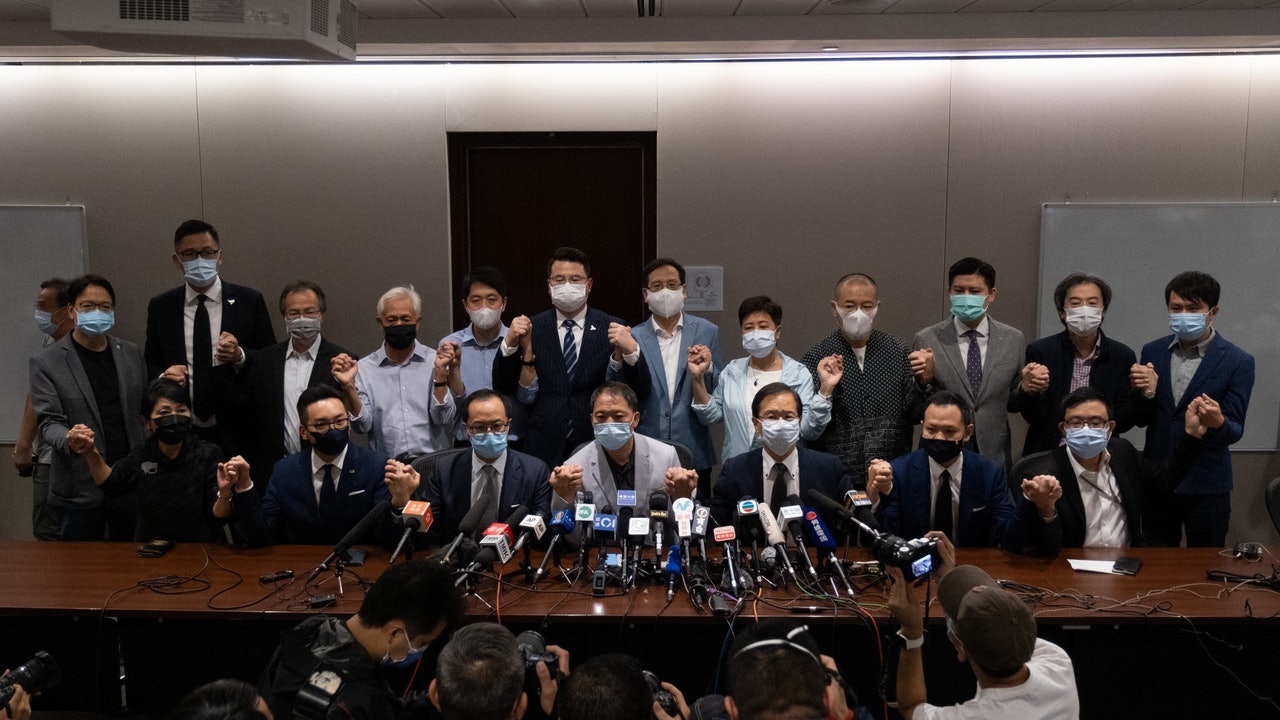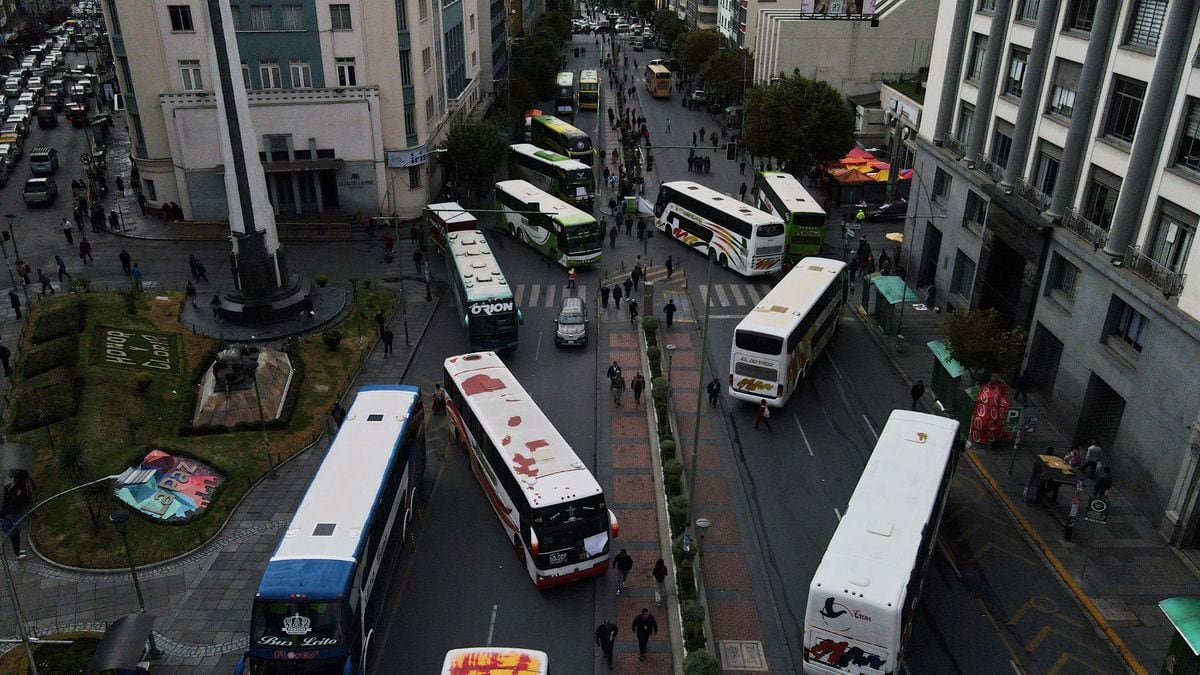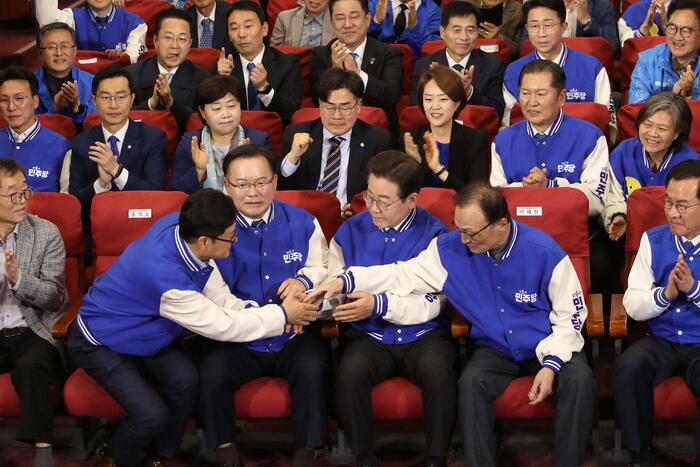Political situation
Written by: Wen Weiguang
2020-12-15 07:00
Last update date: 2020-12-15 07:00
The Democratic Party elected a new leadership on the past Sunday (December 6). The new chairman and chairman of the Southern District Council, Luo Jianxi, said that the Democratic Party will not easily abandon the parliamentary line.
In fact, the outside world is not only concerned about whether the Democratic Party will continue to stand for elections to the Legislative Council, but also about what kind of political discussion mode it will adopt after entering the parliament under the new situation of the National Security Law. This is related to the overall development and management of Hong Kong. Governance quality.
With reference to foreign experience, even in a non-democratic system, the opposition parties can also play the role of supervising and correcting the government. Among them, Singapore, which is more inclined to authoritarian governance than Hong Kong, is a good example.
Analysis of the Democratic Party’s Change of Leadership (3 of 3)
▼The new leadership of the Democratic Party▼
The parliamentary struggle that burned to pieces is not a blessing for Hong Kong
Since the eruption of the legislative amendments last year, some people in the democrats have acted more and more fiercely in the parliament due to the turmoil of the public sentiment in the society and political calculations that intensified the struggle line.
In the "Twins" incident of the Legislative Council's "Fleeing Offenders Ordinance" Amendment Bills Committee, the democrats' protests eventually turned into physical conflicts. Several then-members were later arrested and charged. During the internal disturbances, the entire democrats coordinated to preside over the chairperson selection process Guo Rongkeng pulled the cloth and once again broke out in physical conflict with the establishment, and he would fall into a "half-paralyzed" state.
After the turmoil of the amendments ebbed, the democrats never stopped their fierce protests in the parliament. They used methods such as counting the number of people and throwing stinky bombs to hinder the meeting.
As for the Democratic Party, the largest pan-democratic party, in the original 2020 Legislative Council election, although it did not participate in the joint signing of the "Protestant Position Statement", the party has long stated that it will use all the constitutional powers granted by the Basic Law, including the veto. The "Budget" forced the government to respond to political demands.
The above-mentioned methods of resistance are all methods of burning jade and stone, and hurting both sides, in order to paralyze the operation of the Parliament and the SAR government.
In the future, under the new situation of the "Port National Security Law", not only the DQ risk index is extremely high, but there is even a risk of illegality.
In fact, in order to force the government to improve its governance and correct its mistakes, there are other means to achieve it, apart from blaming the jade with the government. It does not necessarily have to be done with the same method, because the harm to society often outweighs the benefit.
Policy debates and deliberation of public finances can also have functions
In Western democratic parliaments, the opposition parties can at least play the role of monitors, participating in debates on various policy issues, deliberating public expenditures, and questioning government officials.
Opposition parties can even form a shadow cabinet to study public policies, respond to government decisions on various policy issues, and bring responses to public opinion to prevent the government from abusing power or sabotage.
Of course, in Western democracies, the opposition may govern and become the governor in the future, while Hong Kong does not have a ruling party, and the opposition is unlikely to have the possibility of ruling. The orientation is different.
However, even in an environment where it is unable to govern, the opposition can still play a very important role as an overseer. Singapore can serve as a case.
As we all know, Singapore has a certain degree of democratic elections (single constituency and mixed constituency), but it is governed by an authoritarian model.
Remarks against the government are heavily regulated. The government has from time to time detained and accused of opposing speech on the grounds of "defamation." The "Anti-Fake News Law" passed last year gave the government greater power to regulate online platforms, news sites, and even private messages.
The ruling People’s Action Party (PAP) has won all general elections since the founding of the country, and no party can challenge its ruling position.
Authoritarian Singapore: The opposition also has a custom weight
But even in this environment, the opposition party has a check and balance effect on the ruling authorities.
First of all, the existence of opposition parties alone is sufficient to put pressure on the government to improve its governance.
For example, during the 2011 general election, there was a dispute over foreign labor policies in Singapore. Locals were dissatisfied with the excessive number of foreign workers (which accounted for more than 30% of the labor force at the time), robbing locals for employment opportunities and lowering local salaries.
That year, the People's Action Party received 60.14% of the votes, which was a record low.
Although under the electoral system, the People's Action Party still occupies the vast majority of seats, which is not enough to shake its ruling position, the serious drop in votes is enough to "wake up" the government and reduce its dependence on foreign labor.
Therefore, the Singapore government has reformed the foreign labor system since 2012, increased foreign labor taxes and fees, and lowered the upper limit of foreign labor employment in most industries, so as to alleviate public dissatisfaction.
Lee Hsien Loong: Opposition parties must be responsible for national interests before party politics
In the latest general election in 2020, under the new crown pneumonia epidemic, the opposition Workers’ Party has focused on strengthening the social safety net. It has won 10 seats. It is still a minority of 93 seats, but it is the first time in history that a single opposition party has won double digits. Seats.
Prime Minister Lee Hsien Loong also acknowledged the outstanding performance of the Workers’ Party and officially recognized the leader of the Workers’ Party, Pritam Singh, as the leader of the opposition party. It was the first time in history that he was given official staff and public resources to perform his duties.
After the election results, Lee Hsien Loong also said: "A responsible opposition party that puts national interests above partisan politics is very important for our country to win investor confidence." He also publicly pledged in a parliamentary speech in September. Safety nets and foreign labor policies will be the two key issues that the current government will scrutinize carefully, which responds to part of the Workers’ Party’s political platform.
On November 11, 2020, members of the Democratic Party Legislative Council announced their general resignation.
(Photo by Liang Pengwei)
Non-democratic parliaments can also monitor the government
Therefore, in a non-democratic parliament, no matter what disadvantages the opposition parties are in their overall power, there is still plenty of room to do within the system.
As long as we are pragmatic and rational in discussing politics, we can definitely supervise government administration under the premise of social stability.
Compared with Hong Kong, this also leaves a question worth pondering for the new leadership of the Democratic Party: Singapore is more authoritarian than Hong Kong, and there is less room for opposition activities. They still have a powerful influence on government governance and exert their supervisory power in parliament.
Facing the DQ of four members of the Hong Kong Democrats, they immediately shouted "The Legislative Council system is meaningless." Will this be prematurely concluded?
The Democratic Party changes the term|The new party chairman Luo Jianxi: whether to send someone to run depends on the future changes of the Legislative Council
The Democratic Party Change|New Party Chairman Luo Jianxi: Unshakable Ideas, Proposed Formation of a Shadow Party Group to Comment on Current Affairs
Dismantling │The mainstream faction continues to take charge of the new chairman of the Democratic Party
Luo Jianxi was elected as the youngest chairman of the Democratic Party with high votes. Lin Zhuoting and Liang Yiting as vice chairman
01News
Singapore Democratic Party



/cloudfront-eu-central-1.images.arcpublishing.com/prisa/IBFVGVLHJX4X6NLKFIJ4P3HMLA.jpg)



/cloudfront-eu-central-1.images.arcpublishing.com/prisa/RQOIVGVVQYQD3ILPTU3PLOVE6Q.jpg)

